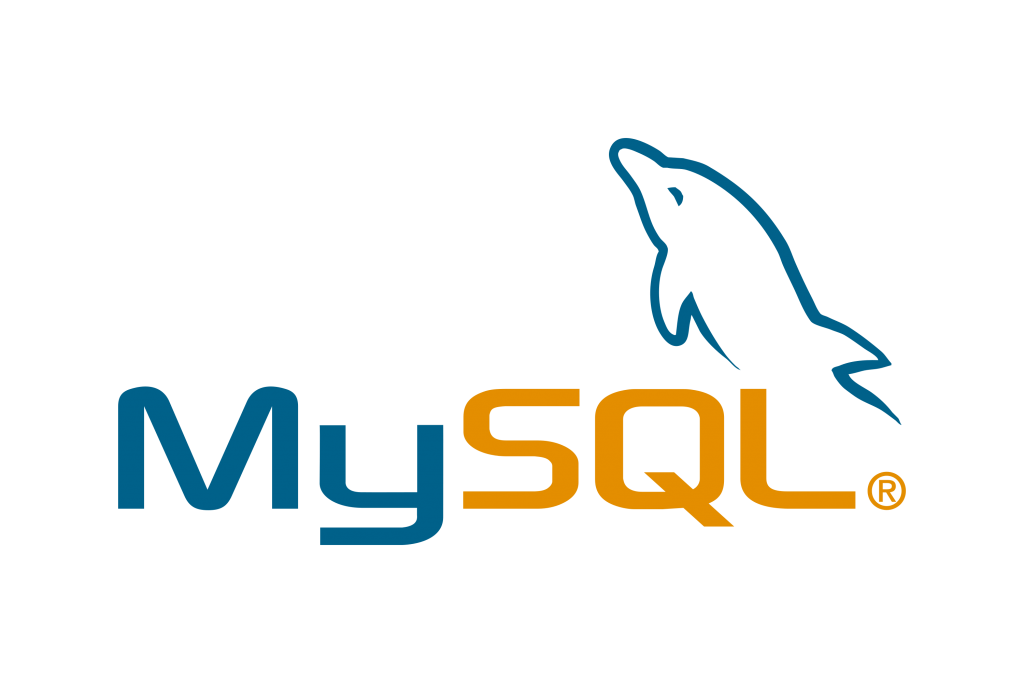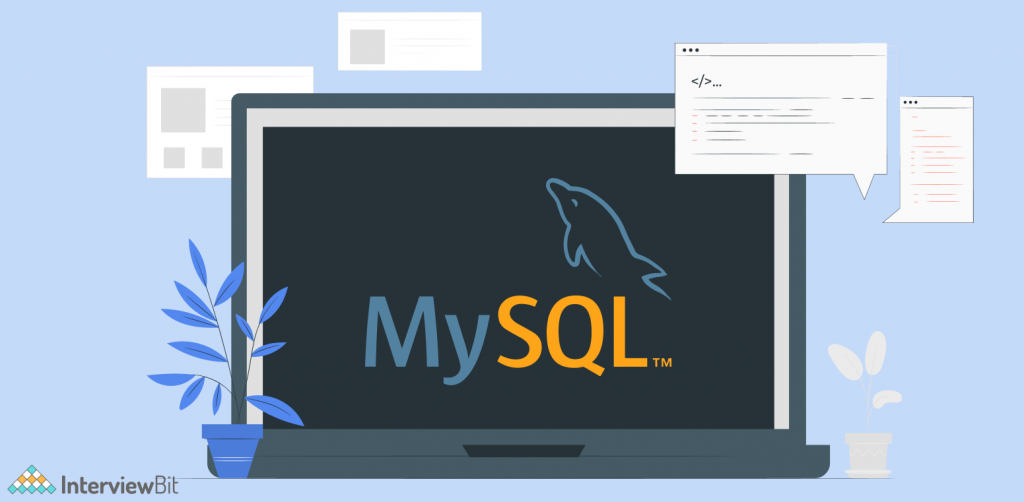As we all know, the Database is the most important part of any web development project. And out of N number of databases available, MySQL is the most popular and freely available database management system. But what exactly is a database or a database management system? Let’s start with the data. Data is defined as the raw and isolated facts about an entity.
Now, a database is a collection of similar or related data (grouped together to form useful information) that is organized so that it can be easily accessed, managed, and modified in the future. And finally, a database management system is software that is used to create, manipulate, and update the database. MySQL is a database management system that uses SQL(Structured Query Language) to handle the databases. In this post, we are going to discuss the MySQL database management system and top MySQL features in brief.
What is MySQL?

MySQL is a Relational Database Management System that is used to store, retrieve, and manage data into the database. As you must have noticed that it is a relational DBMS, so what is the relational meaning here? Relational means it stores data in the form of relational data models that map relationships among data in a row-based table, where each row contains information related to one object and each column represents a field. MySQL is developed by Swedish company MySQL AB, founded by David Axmark, Michael Widenius, and Allan Larsson.
Confused about your next job?
Do You Know: MySQL is named after the daughter of Michael Widenius (co-founder) whose name was ‘My’.
MySQL is based on Client and Server Architecture. Here, the Client machine requests specific data by querying using Structured Query Language (SQL) and the server responds with the desired output to the client machine after processing the request. MySQL server is multithreaded, multitasking, and is designed to work also on heavy-load production systems. It has both transactional and non-transactional engines.
Why is MySQL so popular?
Among various databases available out there, MySQL is the most popular Database Management System that uses Structured Query Language. The one reason for its popularity is, it is open-source software that is freely available. And MySQL is flexible enough to also work in a dynamic environment. MySQL is faster than other databases and it is platform-independent and compatible with many programming languages like C++, Java, Python, Javascript, PHP, Ruby, etc. The community of MySQL is very large, so if you are stuck anywhere then you can get help from the community.
Why Use MySQL?
First of all, it is an open-source and freely available database system backed by Oracle. It is easy to use, it offers both GUI (MySQL Workbench) and CLI (mysqladmin) to the user. MySQL can be distributed over the internet and data can be accessed and modified from anywhere and anytime. MySQL uses encryption technology to secure its connections. Big websites like Youtube, Twitter, Netflix, Pinterest, Amazon, Shopify, Udemy, and Airbnb are using MySQL databases.
MySQL would be a good choice if you are choosing databases. You can try MySQL with zero risk and zero investment. If you get stuck, you can get help from the community. Its installation and setup time is less than other DB systems.
Now let’s discuss the top MySQL features in brief. In this post we are going to cover the following 10 features of MySQL:
- Ease of Management
- High Performance
- Client-Server Architecture
- Compatible and Portable
- Reliable and Fast
- Connectivity and Security
- Stored Procedure
- Triggers
- Concurrency Control
- Dual Passwords
- Storage Engines
Top Features of MySQL
Below are a few important features of MySQL –

Ease of Management
MySQL is an easy to use and simple database system, but in terms of productivity, it is also an efficient database software and is much less complex to set up and administer. MySQL Workbench facilitates users to manage databases and layout databases using the graphical user interface.
High Performance
Just because of its efficient architecture, MySQL is faster, robust, and cheaper. Its server responds with high-performance resultset in comparison to other databases without compromising with essential functions of the software. It has fast-loading utilities due to the different cache memories. MySQL makes use of Stored procedures and Triggers that allow the users to give higher performance.
Client-Server Architecture
MySQL is based on client-server architecture and can be accessed from anywhere as it can work on distributed networks. Every client machine can communicate to the server using an internet connection. The server processes client requests and returns the desired output back to the client machine. In MySQL, it is not necessary for the client to be on the same system as the server. Clients can send requests to remote servers using an internet connection, but the important thing is that the server should be in a running state at that time.
Compatible and Portable
The MySQL server is multi-threaded, so many clients can request data at the same time. Each client can use multiple databases simultaneously. MySQL provides several interfaces like command-line interface, GUI interface, or Web browsers that let you enter queries and view the desired results. In addition, programming interfaces are available for many languages, such as C, Perl, Java, PHP, Python, and Javascript. MySQL supports ODBC (Open Database Connectivity) interface also, it is a driver for connecting to MySQL databases, developed by Microsoft. This gives you the option of choosing either prepackaged client software or writing your own for custom applications.
MySQL is compatible to install and execute on any modern platforms like Windows, macOS, Linus, Unix, etc. MySQL is designed to run on all types of hardware from small PCs to huge servers.
Reliable and Fast
MySQL stores data efficiently in the database ensuring that it should not contain redundant data. MySQL is built on an engine, which is very well optimized for online transaction processing (OLTP) and very good at maximizing the number of transactions per second in your database. As MySQL supports multithreading, it responds to each request with the desired result very quickly by utilizing all the CPU power available.
Connectivity and Security
MySQL can be distributed over the network and databases can be accessed from anywhere on the Internet. Only authorized users can access the database by giving proper credentials. To provide additional security, MySQL supports encryption technology to secure its connections using the Secure Sockets Layer (SSL) protocol.
Stored Procedure
A stored procedure is that piece of code that programmers need, again and again, so MySQL facilitates its user to store their SQL query to promote code reusability and reduce programmers’ overhead. So if a user has SQL queries that he writes over and over again, he can just save those queries as a stored procedure, and then call it to execute that set of queries. Stored procedures can be parameterized also so that it can act based upon the parameter value(s) that is passed to them.
Triggers
This is the stored procedure of MySQL which is automatically executed by the MySQL server when a special event occurs in the database. For example, a trigger can be invoked when a row is inserted into a database’s table or any modification done in a particular column. MySQL has limited supported triggers from version 5.0.
Concurrency Control
Anytime when more than one request tries to modify data at the same time, then it may result in inconsistency in the database, and an issue of concurrency control arises. To resolve this issue, MySQL has an internal lock management system, which prevents reading/writing concurrency control issues.
Dual Passwords
After MySQL version 8.0, it enhances the security of the database by introducing a dual password feature. One password is our regular password and another is a secondary password that is used to transition to the new password. In other words, a second password is used to change the existing password.
Storage Engines
Storage engines are software used by MySQL to create, update and access data from databases. MySQL provides an interface between user and storage engine. MySQL’s storage engine provides both transactional as well as non-transactional storage engines. Transactional means rollback of all executed statements of one transaction is applied, if the transaction does not complete. On the other hand, in Non-transactional, there is no rollback/commit. This engine is useful for executing queries with higher productivity.
Advantages of MySQL
- Data Security: MySQL is the most secure and reliable database management system and is trusted by big websites like Twitter, Netflix, Amazon, Pinterest, and many more…
- Round-the-clock uptime: MySQL assures 24×7 uptime to its user along with speed and accuracy.
- Open-Source and freely available: In comparison to other DBMS software out there, MySQL is customizable due to open-source and its setup time is quicker than others.
- Reduces total cost of ownership: The ease of management can save troubleshooting time that is otherwise wasted in fixing downtime issues and problems related to performance.
- Huge Community: The popularity and effectiveness of MySQL can be judged by looking at its huge community support.
Conclusion
In this article, we discussed the top features of the MySQL database management system along with its history, popularity among other databases, and uses. As MySQL is open source and freely available, I would recommend MySQL database to begin with your database journey. MySQL is flexible enough to work well in dynamic environments, such as web applications. At the same time, MySQL can also be useful in the delivery of software, embedded applications, content indexing, data warehouses, highly available redundant systems, online transaction processing (OLTP), and much more.
Frequently Asked Questions
What are the functions of MySQL?
MySQL provides a variety of functions useful in querying a database through any programming environment. Some of the functions like String functions, Maths Functions, Date/Time Functions, etc.
Which is better: SQL or MySQL?
SQL(Structured Query Language) is a query language that contains several commands useful for storing, manipulating, and retrieving data from databases. On the other hand, MySQL is a complete DBMS software package useful to organize data in tabular structure and form relationships among tables, so the retrieval of useful information can be done in a very efficient manner.
Is Python good for MySQL?
Why not? MySQL is a compatible database management system, and it works everywhere irrespective of platforms, languages, and hardware. Yes, in python, you can use MySQL by importing a specific connector provided by MySQL and getting a connection using connect() method.
What is MySQL Workbench used for?
It is a unified visual tool for developers and data architects. It provides SQL development, data modeling, and comprehensive administration tools for server configuration, user administration, backup, and much more.




